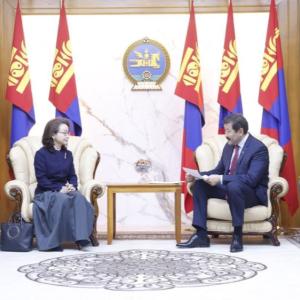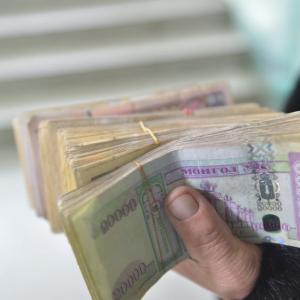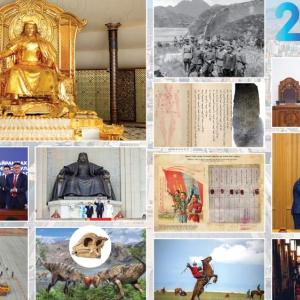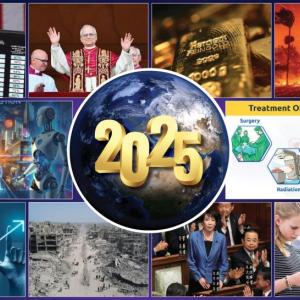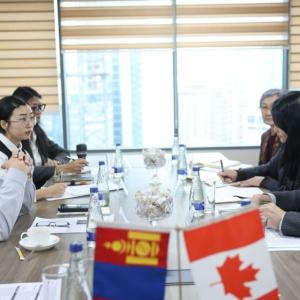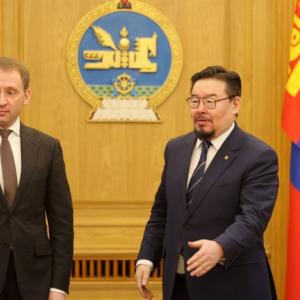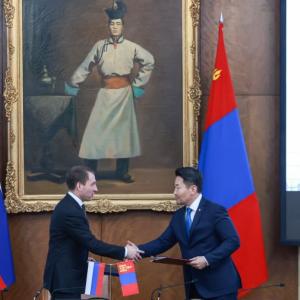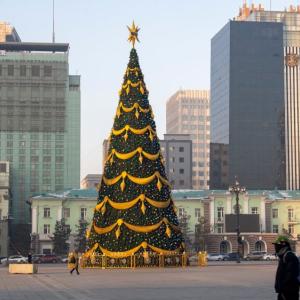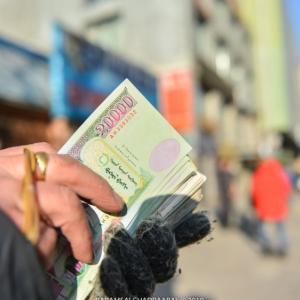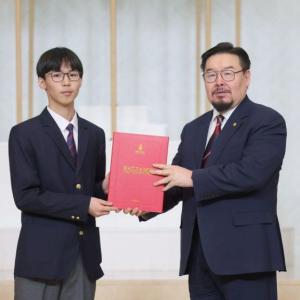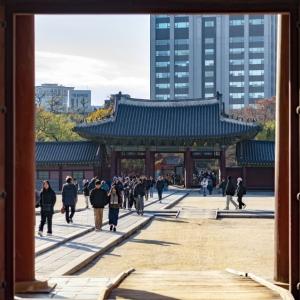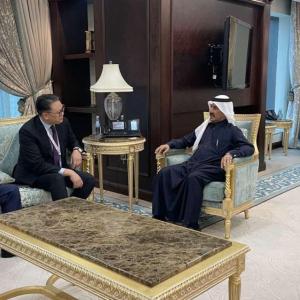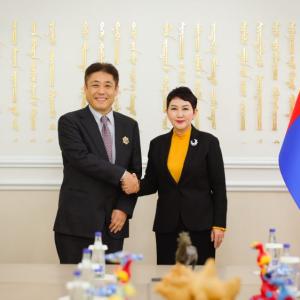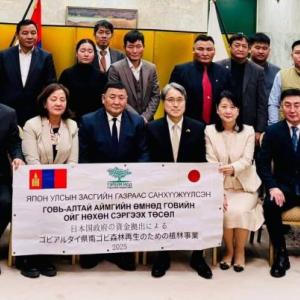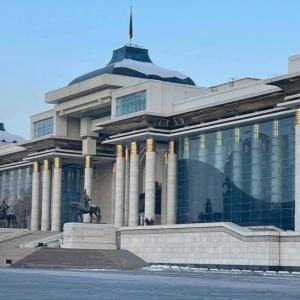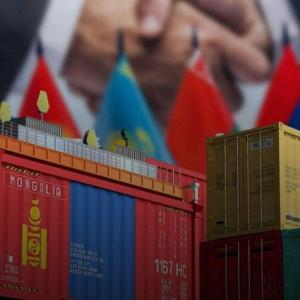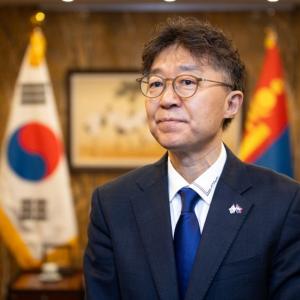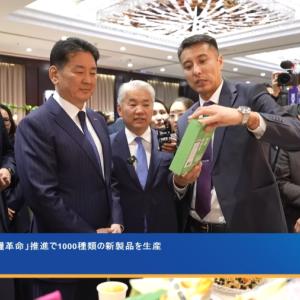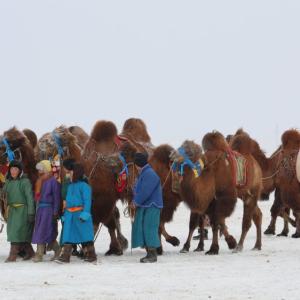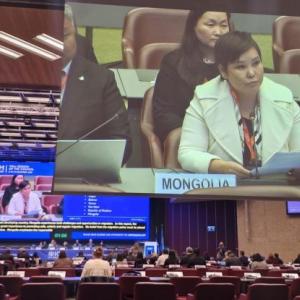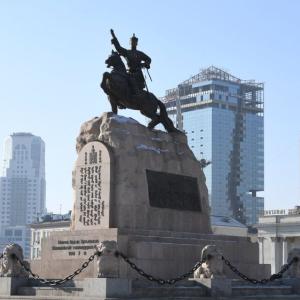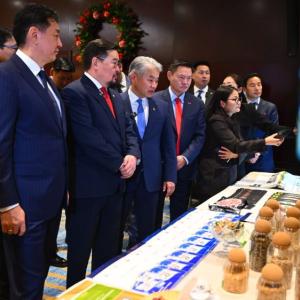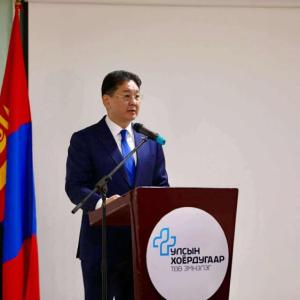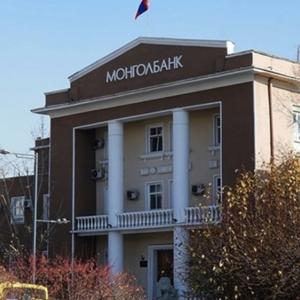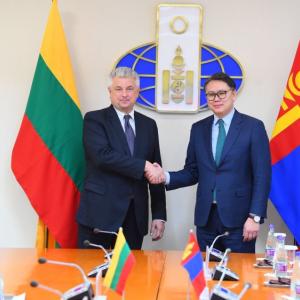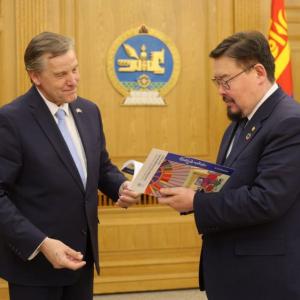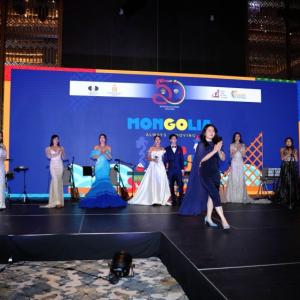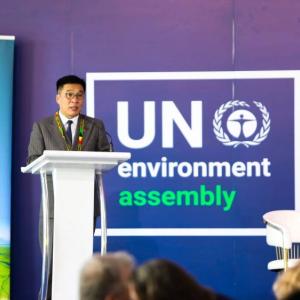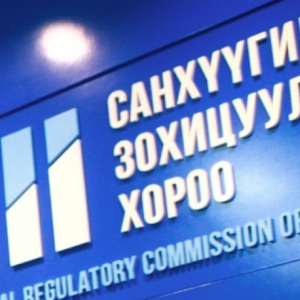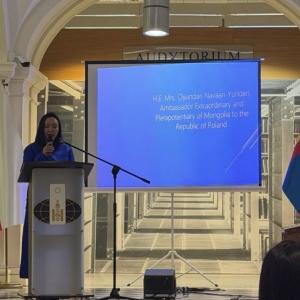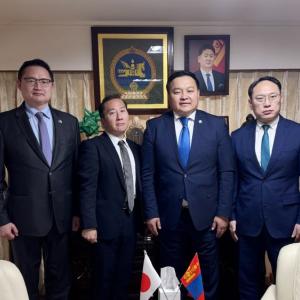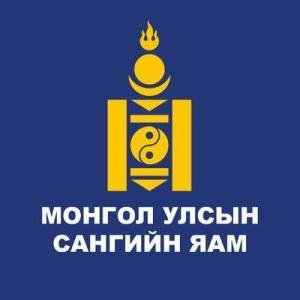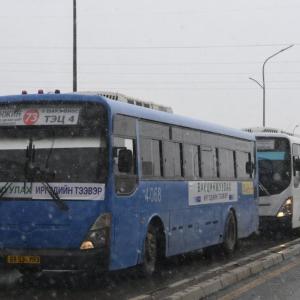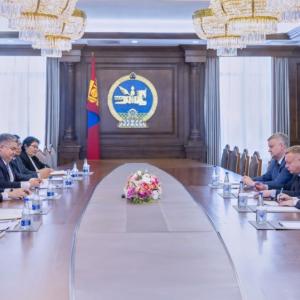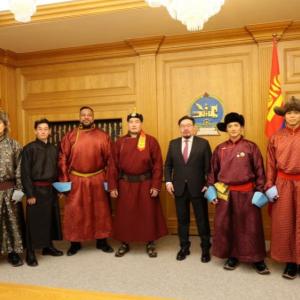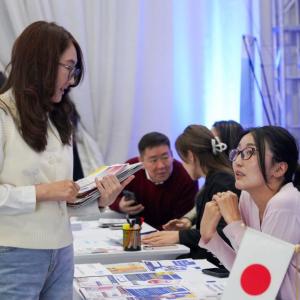B.Tsogtbat-Ochir: Number of tourists increases during construction and tourist seasons
Society
Ulaanbaatar /MONTSAME/ The Immigration Agency and the MONTSAME agency are cooperating on providing useful information to residents and visitors who are planning to travel or work in Mongolia. The following is an interview with Immigration Officer B.Tsogtbat-Ochir who addresses important issues to help foreign nationals understand Mongolian law and regulations on immigration.
How many visa categories are there in Mongolia?
There are 11 visa categories in Mongolia. A foreigner shall apply for appropriate type of visa for his/her purpose of visit. There are 3 levels of visas; Diplomatic, Official and Ordinary. Each visa level has Entry, Exit/Entry or Transit. Entries are Single, Double or Multiple.
There are three organizations that issue Mongolian Visas; The Ministry of Foreign Affairs, Mongolian diplomatic missions abroad and Immigration Agency.
Mongolian diplomatic missions abroad grant “B” Business, “J” Tourist, “O” Foreign nationals from non-governmental organizations and international humanitarian organizations for a maximum period of 30 days. If a foreigner needs to stay beyond 30 days, his/her inviter has to apply to the Immigration Agency.
Which visa is issued most often? What is the average number of visas and visa permits issued per year?
Last year, there were 21,305 visa permits, 14,122 visas issued to residents and temporary visitors. 436 people were invited by Mongolians and Foreign Residents from 67 different countries. Comparing with 2015, there was a 46% decrease in visas issued and a 20.5% decrease in visa permits.
What is the difference between Visa and Visa Permit?
When a person applies for a visa, the Immigration agency will issue a four digit code to the inviting person or organization. This four digit code is the “visa permit”. The code shall be sent to the Embassy that will process the visa. The Embassy verifies the applicant’s code and passport information. After the information is verified, the visa issued.
If there is no Mongolian Embassy in an applicant’s country, then the applicant’s inviter shall apply 14 days before his/her arrival. A visa permit shall be mailed, faxed or scanned and sent to foreign visitor. The foreigner should hand over his/her visa permit to the Immigration officer at border checkpoints. Then the immigration officer will issue arrival visa.
Visa permission’s validity is 183 days.
What do foreign visitors need to pay attention to in order to get a visa?
Understand the immigration laws and government resolutions No. 340 and No. 338, 2010. Please, visit the immigration web site: immigration.gov.mn. Prepare the necessary documents completely. If documents are not completed properly, there will be a delay in the processing. So be sure to count the days that you may need during your visit.
In what case can you receive a visa without getting a permit?
There is only one visa issued without permission. If one of the parents is Mongolian national and the child is foreign born, less than 16 years old, then 90 days visa is issued without a visa permit at borders and Mongolian diplomatic missions abroad.
In response to work overload at the Immigration Agency, what can be done to simplify the process?
The Ministry of Justice announced that 2017 will be a ‘Year of Simple Legal Services’ for citizens. This will involve E-Immigration project which has been developed by the Immigration Agency.
Through the project, the “visa permit code” is sent via text message and cellular network companies support this new message service.
The other development is that the visa permit and personal invitation services will be available online in June.
What should the inviting organizations or people pay attention to, when inviting foreigners who are planning to come as residents or temporary visitors?
Upon arrival in Mongolia, foreigners planning on staying more than 30 days must register themselves at the Immigration Agency within 7 business days after arrival. This is a responsibility of the foreigner and inviting person or organization. If the foreigner intends to stay in Mongolia over 90 days, the inviting organizations or people have to file all residence documents at the Immigration Agency within 21 calendar days after arrival. The 21 days are counted from the first day of arrival.
The organizations and people that invite foreigners have to register an invitee at the Immigration Agency within allotted time. Furthermore, the inviting organizations and people are responsible for filing the Residence documents within allotted time, and guarantee of financial support and visa. The inviting organization or people must make sure the visitor leaves within the permitted time.
If the inviting organization or people do not register the visitor within the 7 business days, the fine is between MNT 1,200,000 – 2,400,000. If the inviting organization or people do not file the visitor’s residence documents within the 21 calendar days, the fine is between MNT 240,000 - 720,000. If the inviting organization or people hide or harbor the visitor that does not have the proper documents, the fine is between MNT 240,000 - 1,200,000. The inviting organizations and people must abide with immigration laws and government resolutions No. 340 and No. 338. The inviting organizations and people can exercise their rights and be responsible.
How many visa categories are there in Mongolia?
There are 11 visa categories in Mongolia. A foreigner shall apply for appropriate type of visa for his/her purpose of visit. There are 3 levels of visas; Diplomatic, Official and Ordinary. Each visa level has Entry, Exit/Entry or Transit. Entries are Single, Double or Multiple.
There are three organizations that issue Mongolian Visas; The Ministry of Foreign Affairs, Mongolian diplomatic missions abroad and Immigration Agency.
Mongolian diplomatic missions abroad grant “B” Business, “J” Tourist, “O” Foreign nationals from non-governmental organizations and international humanitarian organizations for a maximum period of 30 days. If a foreigner needs to stay beyond 30 days, his/her inviter has to apply to the Immigration Agency.
Which visa is issued most often? What is the average number of visas and visa permits issued per year?
Last year, there were 21,305 visa permits, 14,122 visas issued to residents and temporary visitors. 436 people were invited by Mongolians and Foreign Residents from 67 different countries. Comparing with 2015, there was a 46% decrease in visas issued and a 20.5% decrease in visa permits.
What is the difference between Visa and Visa Permit?
When a person applies for a visa, the Immigration agency will issue a four digit code to the inviting person or organization. This four digit code is the “visa permit”. The code shall be sent to the Embassy that will process the visa. The Embassy verifies the applicant’s code and passport information. After the information is verified, the visa issued.
If there is no Mongolian Embassy in an applicant’s country, then the applicant’s inviter shall apply 14 days before his/her arrival. A visa permit shall be mailed, faxed or scanned and sent to foreign visitor. The foreigner should hand over his/her visa permit to the Immigration officer at border checkpoints. Then the immigration officer will issue arrival visa.
Visa permission’s validity is 183 days.
What do foreign visitors need to pay attention to in order to get a visa?
Understand the immigration laws and government resolutions No. 340 and No. 338, 2010. Please, visit the immigration web site: immigration.gov.mn. Prepare the necessary documents completely. If documents are not completed properly, there will be a delay in the processing. So be sure to count the days that you may need during your visit.
In what case can you receive a visa without getting a permit?
There is only one visa issued without permission. If one of the parents is Mongolian national and the child is foreign born, less than 16 years old, then 90 days visa is issued without a visa permit at borders and Mongolian diplomatic missions abroad.
In response to work overload at the Immigration Agency, what can be done to simplify the process?
The Ministry of Justice announced that 2017 will be a ‘Year of Simple Legal Services’ for citizens. This will involve E-Immigration project which has been developed by the Immigration Agency.
Through the project, the “visa permit code” is sent via text message and cellular network companies support this new message service.
The other development is that the visa permit and personal invitation services will be available online in June.
What should the inviting organizations or people pay attention to, when inviting foreigners who are planning to come as residents or temporary visitors?
Upon arrival in Mongolia, foreigners planning on staying more than 30 days must register themselves at the Immigration Agency within 7 business days after arrival. This is a responsibility of the foreigner and inviting person or organization. If the foreigner intends to stay in Mongolia over 90 days, the inviting organizations or people have to file all residence documents at the Immigration Agency within 21 calendar days after arrival. The 21 days are counted from the first day of arrival.
The organizations and people that invite foreigners have to register an invitee at the Immigration Agency within allotted time. Furthermore, the inviting organizations and people are responsible for filing the Residence documents within allotted time, and guarantee of financial support and visa. The inviting organization or people must make sure the visitor leaves within the permitted time.
If the inviting organization or people do not register the visitor within the 7 business days, the fine is between MNT 1,200,000 – 2,400,000. If the inviting organization or people do not file the visitor’s residence documents within the 21 calendar days, the fine is between MNT 240,000 - 720,000. If the inviting organization or people hide or harbor the visitor that does not have the proper documents, the fine is between MNT 240,000 - 1,200,000. The inviting organizations and people must abide with immigration laws and government resolutions No. 340 and No. 338. The inviting organizations and people can exercise their rights and be responsible.
 Ulaanbaatar
Ulaanbaatar








